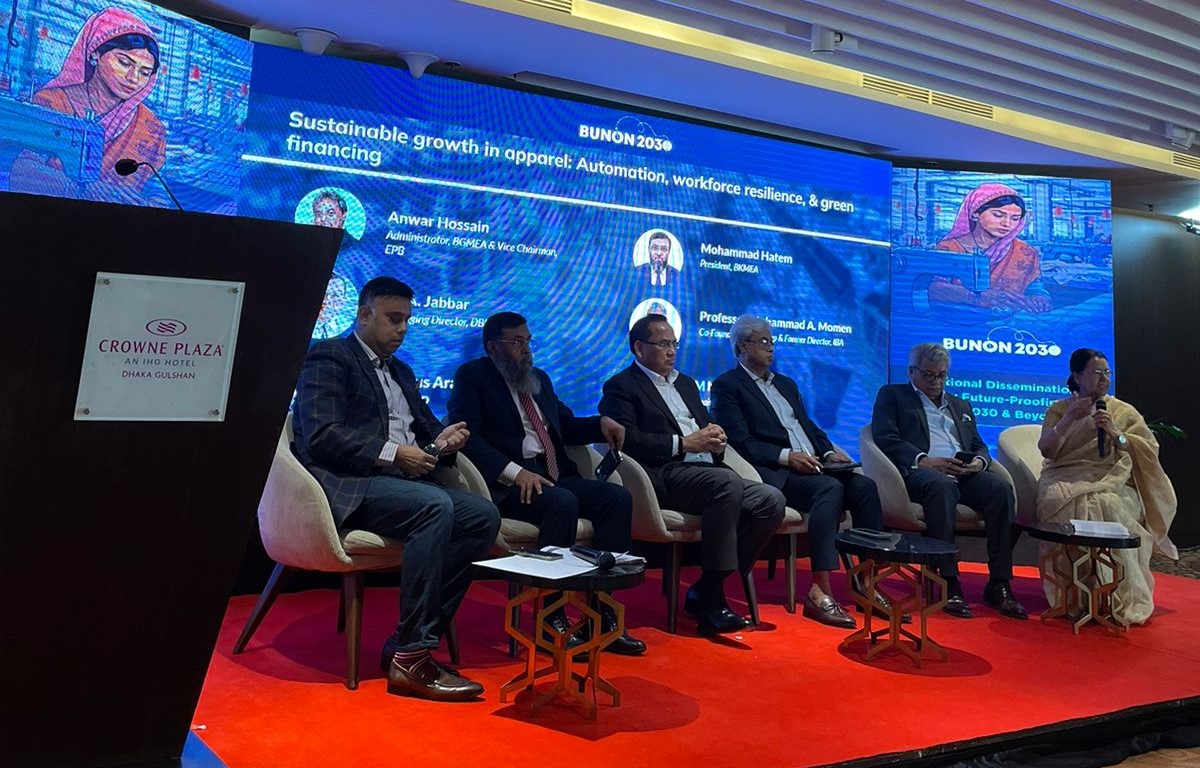Action urged to address long-term decline in women's share of workers in RMG

The proportion of women workers in Bangladesh’s ready-made garment (RMG) sector has dropped significantly, raising concerns for the industry’s future. According to data from the Bangladesh Garment Manufacturers and Exporters Association (BGMEA), women constituted 80% of the workforce in 1980, but this number declined to 53.7% by 2021. The decrease is most noticeable among workers aged 18 to 35, many of whom leave the industry for alternative professions such as agriculture, domestic work, or tailoring.
Experts attribute this trend to factors like factory unrest, the pursuit of better wages, and a desire for more independence in their work. This issue was highlighted during the presentation of a report titled Bunon 2030: Key Interventions, Insights, & Way Forward for Bangladesh’s RMG Sector at a discussion event in Dhaka. The session, organized by LightCastle Partners and Policy Exchange Bangladesh, shed light on the implications of the workforce decline and offered recommendations to reverse the trend.
Speakers emphasized the importance of creating a safer, women-friendly work environment, ensuring fair and timely wages, and providing better health services. These measures are deemed essential for retaining skilled female workers and maintaining a motivated workforce, which is crucial for the sustainability of the RMG sector.
The event also addressed broader challenges such as decarbonization, automation, and Bangladesh’s impending graduation from Least Developed Country (LDC) status. Mohammad Hatem, President of the Bangladesh Knitwear Manufacturers and Exporters Association (BKMEA), warned that the loss of trade benefits like the General System of Preferences (GSP) in 2026 could lead to increased costs and reduced competitiveness.
Bangladesh’s RMG sector, which generated $36 billion in exports in the 2023-2024 fiscal year and contributed 10.35% to the GDP, employs over 4 million workers. However, the lack of skilled labor and non-compliance among some manufacturers could hinder growth. The Bunon 2030 report urged the industry to align with global standards, improve resource efficiency, and prepare for the transition to sustainable practices to ensure long-term growth and resilience.
Stakeholders at the event, including government officials, BGMEA leaders, and industry experts, called for immediate action to address these challenges. They highlighted the need for collaborative efforts to secure the sector’s competitiveness and its continued role as a cornerstone of Bangladesh’s economy.




